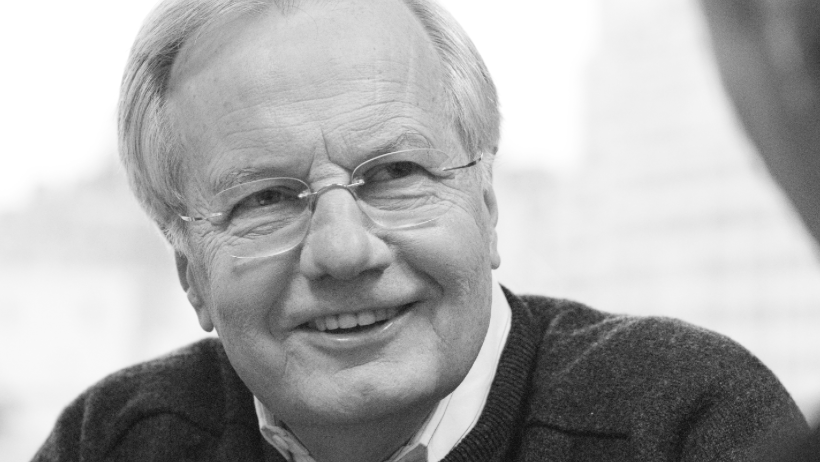Content:

Bill Moyers Kept the Faith in Democracy. We Need His Example More Than Ever.
The Nation
06/27/2025
On an afternoon in April, as we left an Italian coffee shop a few blocks from Central Park, he paused our conversation about whether America was experiencing the worst of times. Bill recalled flying from Dallas to Washington on November 22, 1963, aboard the plane that transported the body of John Fitzgerald Kennedy, the assassinated president he had served as deputy director of the Peace Corps, along with Lyndon Johnson, the newly inaugurated president he would go on to serve as press secretary.
The American experiment that he had come to cherish as a boy growing up in Marshall, Texas, had experienced plenty of rough days, he explained. As Bill spoke, I was reminded that few Americans had seen so much of the country’s history, and shaped so much of its public discourse, as Bill Moyers.
The “press secretary” title that he held during much of Johnson’s White House tenure never really captured the scope of Bill’s influence. He was an essential figure in a transformative presidency. Still in his early 30s, he served as a counselor, chronicler, and strategist for the 36th president, witnessing the highs and lows of an administration that delivered the Civil Rights Act, the Voting Rights Act, and the War on Poverty, and a plan for establishing the public broadcasting system now known as PBS. And as a member of the Carnegie Commission on Education Television, Bill helped craft the groundbreaking report, “Public Television: A Plan for Action,” which led to the Public Broadcasting Act of 1967 and the creation of PBS, an institution to which he remained devoted for the rest of his life.
Bill left the administration at a point when the bright shining dreams of Johnson’s early presidency were eclipsed by the nightmare that was the Vietnam War. “We had become a war government, not a reform government,” he explained, “and there was no creative role left for me under those circumstances.”
Bill turned his creative impulse toward writing and broadcasting—as the publisher of the newspaper Newsday, a senior commentator for CBS and NBC, and finally as the award-winning host of public broadcasting programs such as Bill Moyers Journal and NOW With Bill Moyers. Along the way, Bill won more than 30 Emmy Awards, wrote best-selling books, and produced documentaries and investigations that upended the lies of our times—including the groundbreaking and still-relevant 2007 report Buying the War: How the Media Failed Us, which detailed the collapse of basic journalistic skepticism on the part of the major media outlets that never seriously challenged, and at times actively encouraged, the Bush-Cheney administration’s rush to war in Iraq.
It was on the eve of that war that Bill invited Bob McChesney and myself to join him for the first of several extended conversations about media and politics on his PBS programs. Those conversations planted the seeds for the formation of a national media reform network, Free Press, and for several national conferences on media reform that Bill addressed as a keynote speaker.
His objections to pro-war propaganda and corporate power, and his unflinching determination to champion independent journalism that questioned presidents and CEOs and challenged economic and racial injustice, cost him dearly. Yet Bill loved the fight—and he loved using his broadcast platform to introduce Americans to big ideas (from the left and the right) and to political outsiders, including libertarian Republicans such as Ron Paul and progressives such as Bernie Sanders and Elizabeth Warren.